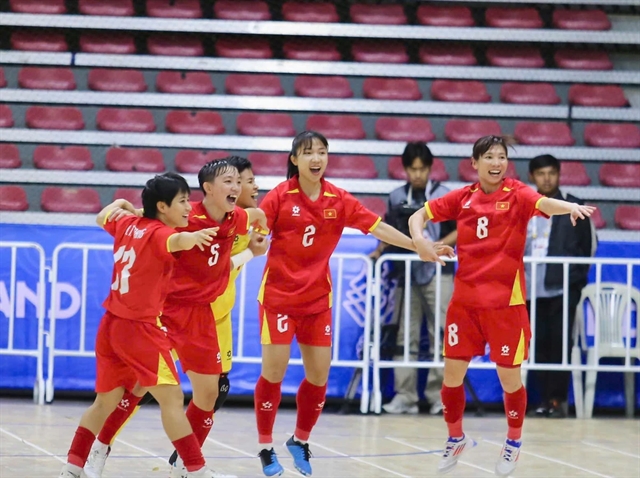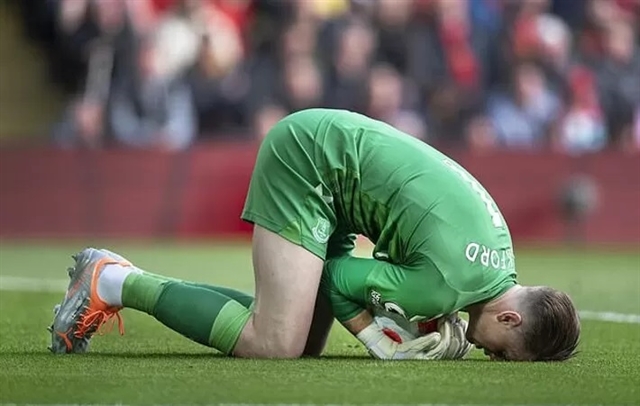 Sports
Sports

 |
| Goalkeepers will be closely monitored next season over how long they keep hold of the ball. AFP Photo |
Paul Kennedy
Not long to go now. Two weeks to be exact. On Friday August 16, the Premier League finally gets started again.
OK, technically speaking its early hours Saturday morning here in Việt Nam, but you get my drift.
First up, Manchester United host Fulham, but the big game of the weekend sees champions Manchester City travel to Chelsea.
Can’t come soon enough for me. Sure, we had the Euros last month and the Copa America, but as far as football is concerned, nothing beats the Premier League.
This season, there are a few changes you might not be aware of. Pretty subtle really, but changes, none the less.
There will be a number of new trials that will be interesting to see if they work or not.
The first is called captain zones.
According to the rule book: “To manage player behaviour, only the team captain can approach the referee in designated zones in this trial, which aims to reduce confrontations after decisions.”
The second is cooling-off periods which states: “In cases of mass confrontations, referees will trial halting matches and send teams to their penalty areas to de-escalate tensions before resuming play.”
And the final rule to be trialled this season involves goalkeepers who are now allowed to hold the ball for eight seconds, increased from six. Holding the ball beyond eight seconds will result in possession awarded to the opposition.
Now the first two, I think are pretty obvious and we really shouldn’t see too many ‘mass confrontations’ over the course of the season. Or at least I hope not.
As for captains approaching referees, well that seems to be the norm already and the new change means they have to do so in a designated area.
But in the case of goalkeepers holding on to the ball for eight seconds, well that could be interesting.
Let’s face facts, goalkeepers have been getting away with holding the ball for too long for a while now (yes Jordan Pickford, I’m talking about you) and it’s something referees rarely pick up on.
Word on the street is that although the time period has been extended by two seconds, referees will be far less forgiving and punish keepers by giving possession to the opposing team in the form of a throw-in in line with the penalty area.
For the last five seconds the referee will raise his hand and count down five fingers to warn the player of how much time they have remaining.
Let’s see how this pans out. VNS




